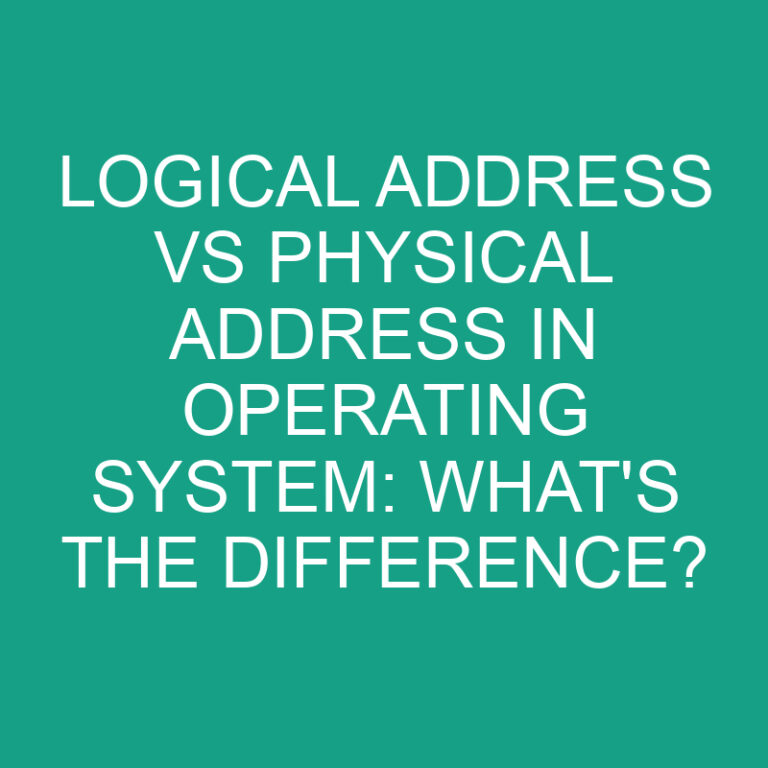
Production Management Vs Operations Management: What’s the Difference?
Production and Operations Management are two very different types of management that help businesses manage their resources in a way that optimizes output while minimizing costs. In this article, we will explore the key differences between Production Management and Operations Management, and explain why each is so important in a business.
What is Production Management?
Production management is the overall process of planning, organizing, and controlling the production of a product or service. Production management incorporates strategies for meeting customer needs, ensuring safe and efficient production, and optimizing costs.
Operations management is the process and application of systems thinking to optimize the flow of resources and information in an organization. Operations management focuses on managing processes and systems so that they deliver value to the organization.
Production managers use operations concepts to improve efficiency and effectiveness in manufacturing plants. They analyze data to identify problems and trends, then create solutions that improve production. By doing so, they help to ensure high-quality products at affordable prices.
Operations managers use systems Thinking to understand how resources are used in an organization. They then develop plans and strategies to optimize the flow of resources and information so that they can meet organizational goals. By doing so, they help to ensure that all employees are working efficiently and effectively together.
What is Operations Management?
Operations management is a process that helps an organization achieve its goals by managing the resources and activities that produce outputs. In other words, it’s all about getting things done efficiently and effectively. Operations management includes everything from planning and organizing work to monitoring and controlling performance.
The Difference Between Production Management and Operations Management
Production management is all about creating an efficient, effective and sustainable production process. In contrast, operations management is all about managing the day-to-day activities that take place in a production environment. Operations management typically involves tasks such as planning, scheduling, controlling resources and monitoring performance.
If you’re interested in advancing your career in production or operations management, it’s important to be aware of the key differences between these two fields.
Case Study: A Company Using Production Management vs. Operations Management
Production management is a type of management that focuses on planning, organizing, and delegating tasks to ensure the efficient and effective production of goods or services.
Operations management, on the other hand, is focused on managing the operational aspects of an organization’s business- from purchasing to production to delivery.
Both techniques have their benefits and drawbacks, so it’s important to choose the right approach for your specific company. Here’s a case study to help you decide.
Background: XYZ Company produces both plastic and metal products. They’ve been using production management techniques for years, but they’re considering switching to operations management because they think it would be more efficient.
Analysis: In theory, production management should be better than operations management because it should focus on planning and organization while operations manages day-to-day logistics. In practice, however, this is rarely the case.
The main reason is that production management typically involves too much micromanagement. In order to keep everything running smoothly, managers tend to overrule decisions made by frontline workers. This often results in poorer quality products and increased wastefulness.
On the other hand, operations
Why is Production Management important?
Production management is important because it helps to ensure that products are manufactured on time, within budget, and meeting customer requirements.
Operations management is important because it oversees the day-to-day tasks of running a business. Operations management includes tasks such as monitoring production performance, ensuring the safety of employees, and ensuring that supplies are available when needed.
Why is Operations Management important?
Operations management helps businesses to optimize their production processes, and ensure that products are produced in an efficient and cost-effective manner. It covers a wide range of topics, such as process improvement, inventory management, scheduling, quality control and more.
Operations management is important for a number of reasons. First, it helps businesses to optimize their production processes. This can include improving the flow of materials through a factory, reducing waste and ensuring that products are produced in an efficient and cost-effective manner. Second, operations management helps to ensure that products are of high quality. This can be done through the implementation of quality control measures, such as testing and inspection, or by ensuring that products meet customer expectations. Finally, operations management can help to save businesses money by reducing costs associated with production, such as labour costs or overhead costs.
Conclusion
Production management and operations management are two of the most popular job roles in business. Both are important, but they have different focuses. Production management is focused on creating products or services to meet customer demand. Operations management, by contrast, is focused on ensuring that the resources used to produce those products or services are managed effectively so that they meet production objectives and continue to be produced without causing any disruption.






